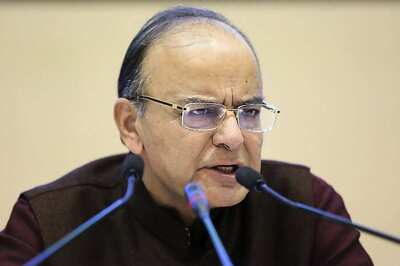
views
Whoever said that science transcends national barriers? When it perhaps most needed to, it isn’t. And so Britain is pursuing a controversial, and radically different, approach to coronavirus. In that it is being guided, Prime Minister Boris Johnson has said repeatedly, by science. It’s a very different science from what the rest of the world is following.
This British reading of science — and it’s the reading by official scientists that is dictating policy — argues that a lot of people should actually get coronavirus for the entire population to recover from it. It’s scientifically called the “herd immunity” approach. Under this approach, the scientists would like about 60 per cent of the population to develop coronavirus to then make it harder for the rest to get it. The reasoning is that once it spreads widely enough, enough people will then develop resistance to make it harder for it to spread.
Unbelievable it may seem, but this is official.
And in line with this, the government has been holding out against closing schools, against big social and sports gatherings, against any moves to encourage social distancing. In the face of rising popular shock against this policy, the government is now considering a U-turn next week where it may ban large gatherings and sports events. But that is under public pressure building up against this policy; it’s a compromise offered, not a conviction that it’s getting its science wrong.
The “herd immunity” argument is being advanced by UK's chief scientific adviser, Sir Patrick Vallance. The herd argument works ideally with development of an eventual vaccine. Sir Patrick acknowledges that a coronavirus vaccine will not be produced in time to contain the current outbreak. And so, the reasoning goes, in the absence of a vaccine effectively administered to the population, a large enough number of people will need to contract the virus and then recover. That would mean they are then less likely to get the virus again, and therefore less likely to spread it.
Now, a group of 229 scientists from leading institutions across Britain have written to the government, strongly criticising the arguments advanced by Vallance and his team. They have demanded publication of his modelling to open it to peer review. Policy based on this reasoning, they say, could place many thousands of lives at immediate risk.
If you were to take that policy to India, the government would be announcing that it would like about 700-800 million people to get coronavirus. We can all guess for ourselves the fate of a political leader who goes public with such a suggestion, even if flanked by scientists with official standing. The advice itself is far from clear; of course, the official scientists say, people must wash their hands and so on and isolate themselves should they develop symptoms; the government is not exactly asking people to go hug infected people. But it has stopped short of all the public action that just about every country has taken that would halt its spread.
India has placed itself under lockdown; simply no visits are being allowed other than some official and diplomatic visits and others for specified employment and project-related work. The government’s reasoning is that this is best stopped at the door; it would be far harder to stop its spread if it were to hit high density population pockets. And this is in line with the lockdown method adopted successfully by China, and one that is showing results now in Italy. Governments across Europe, now the official epicentre of the pandemic, are following similar policies of stopping the spread of people to stop the spread of infections they may potentially carry.
But not Britain. Flights to Britain have not been banned, they have only been limited from some northern areas of Italy. No screening of arriving passengers takes place at British airports. People are travelling less because they have chosen not to, and not because the government is stopping anyone. Restrictions over public and sports gatherings are appearing because they are self-invited, and not as a result of government policy. Sports bodies have themselves stopped events without waiting for government orders. Now the government is at last considering steps that in fact are beginning to follow public practice. Boris Johnson is at last starting to follow his people; the leader is U-turning to follow the herd while trying also to follow the scientists.
Sir Patrick, the chief scientific adviser, has said about 5,000 to 10,000 people in Britain already have coronavirus, though the official number arising from limited tests is far smaller. So Britain would seem happily on its way to inviting coronavirus for more and more of its people, going by this science. Scientists in other countries, governments in other countries are doing it differently. British people are beginning more and more to follow their science and their governments.




















Comments
0 comment